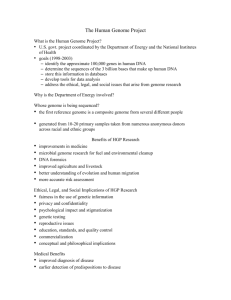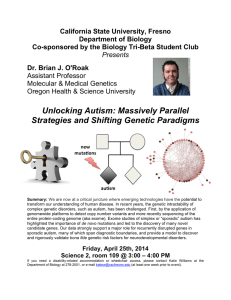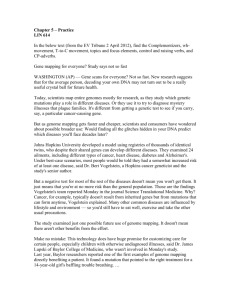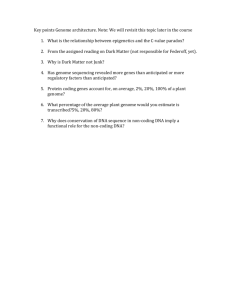Evan E. Eichler, Ph.D. Biographical Information
advertisement
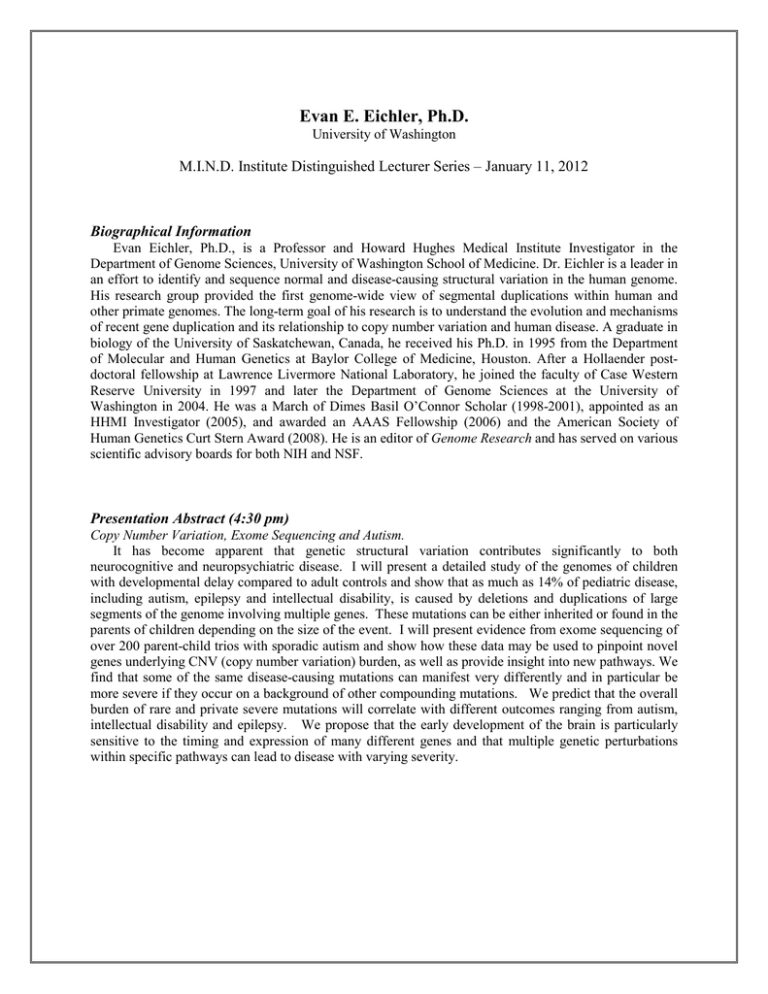
Evan E. Eichler, Ph.D. University of Washington M.I.N.D. Institute Distinguished Lecturer Series – January 11, 2012 Biographical Information Evan Eichler, Ph.D., is a Professor and Howard Hughes Medical Institute Investigator in the Department of Genome Sciences, University of Washington School of Medicine. Dr. Eichler is a leader in an effort to identify and sequence normal and disease-causing structural variation in the human genome. His research group provided the first genome-wide view of segmental duplications within human and other primate genomes. The long-term goal of his research is to understand the evolution and mechanisms of recent gene duplication and its relationship to copy number variation and human disease. A graduate in biology of the University of Saskatchewan, Canada, he received his Ph.D. in 1995 from the Department of Molecular and Human Genetics at Baylor College of Medicine, Houston. After a Hollaender postdoctoral fellowship at Lawrence Livermore National Laboratory, he joined the faculty of Case Western Reserve University in 1997 and later the Department of Genome Sciences at the University of Washington in 2004. He was a March of Dimes Basil O’Connor Scholar (1998-2001), appointed as an HHMI Investigator (2005), and awarded an AAAS Fellowship (2006) and the American Society of Human Genetics Curt Stern Award (2008). He is an editor of Genome Research and has served on various scientific advisory boards for both NIH and NSF. Presentation Abstract (4:30 pm) Copy Number Variation, Exome Sequencing and Autism. It has become apparent that genetic structural variation contributes significantly to both neurocognitive and neuropsychiatric disease. I will present a detailed study of the genomes of children with developmental delay compared to adult controls and show that as much as 14% of pediatric disease, including autism, epilepsy and intellectual disability, is caused by deletions and duplications of large segments of the genome involving multiple genes. These mutations can be either inherited or found in the parents of children depending on the size of the event. I will present evidence from exome sequencing of over 200 parent-child trios with sporadic autism and show how these data may be used to pinpoint novel genes underlying CNV (copy number variation) burden, as well as provide insight into new pathways. We find that some of the same disease-causing mutations can manifest very differently and in particular be more severe if they occur on a background of other compounding mutations. We predict that the overall burden of rare and private severe mutations will correlate with different outcomes ranging from autism, intellectual disability and epilepsy. We propose that the early development of the brain is particularly sensitive to the timing and expression of many different genes and that multiple genetic perturbations within specific pathways can lead to disease with varying severity.

